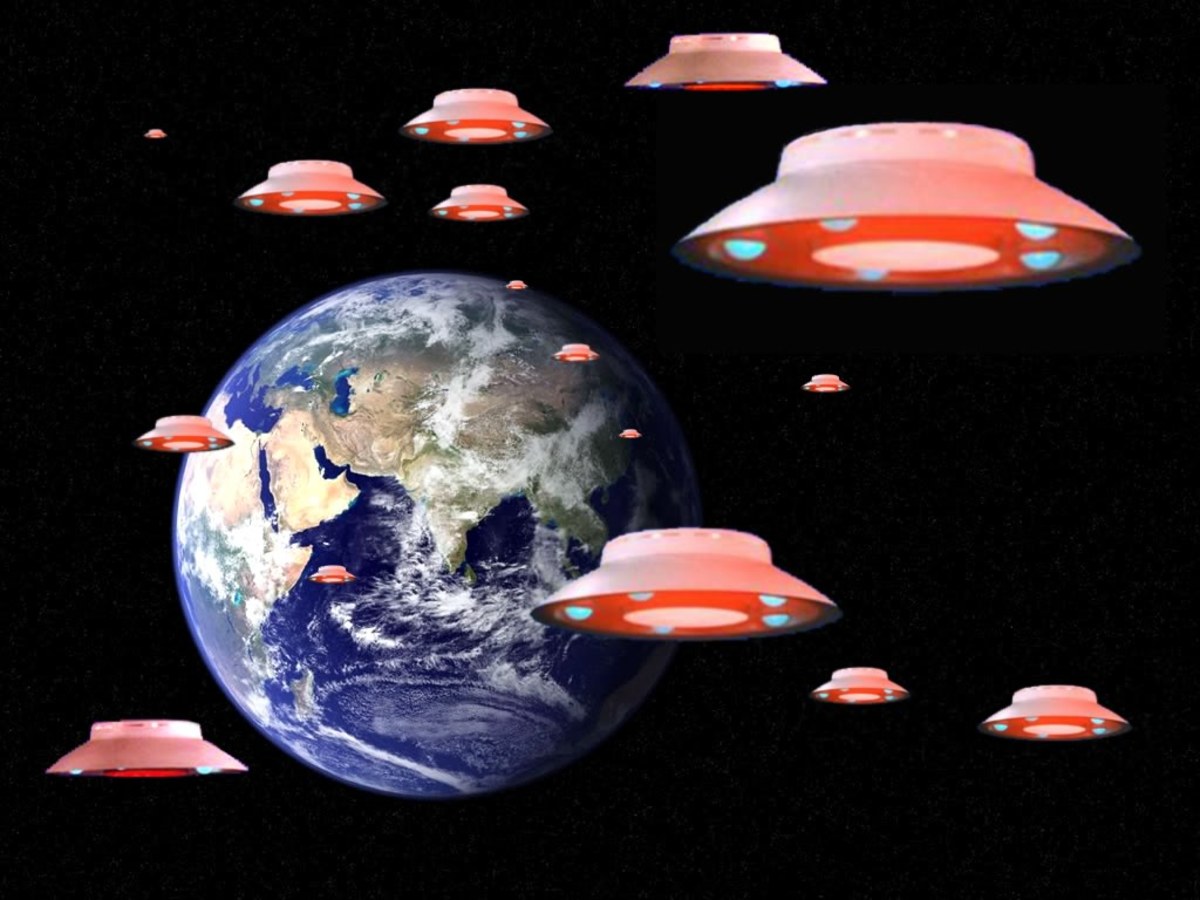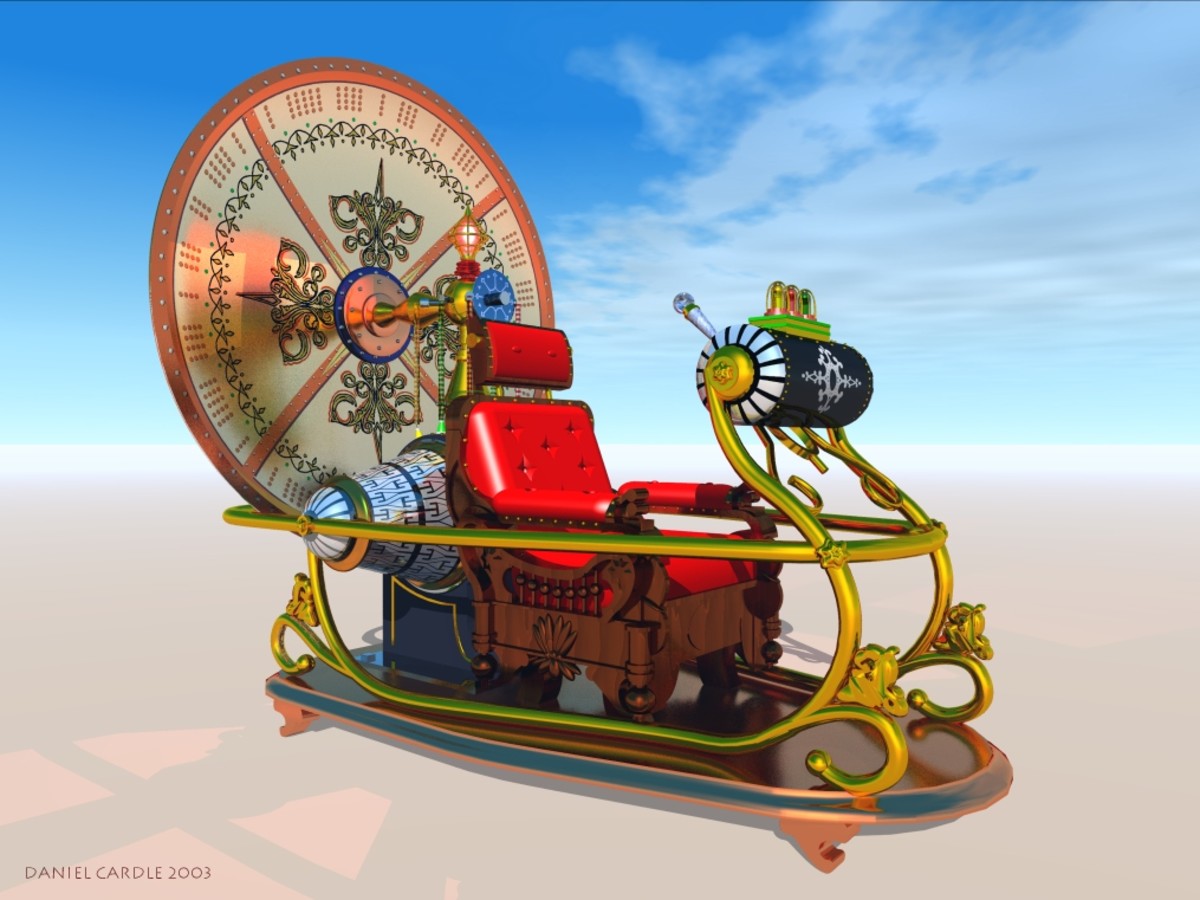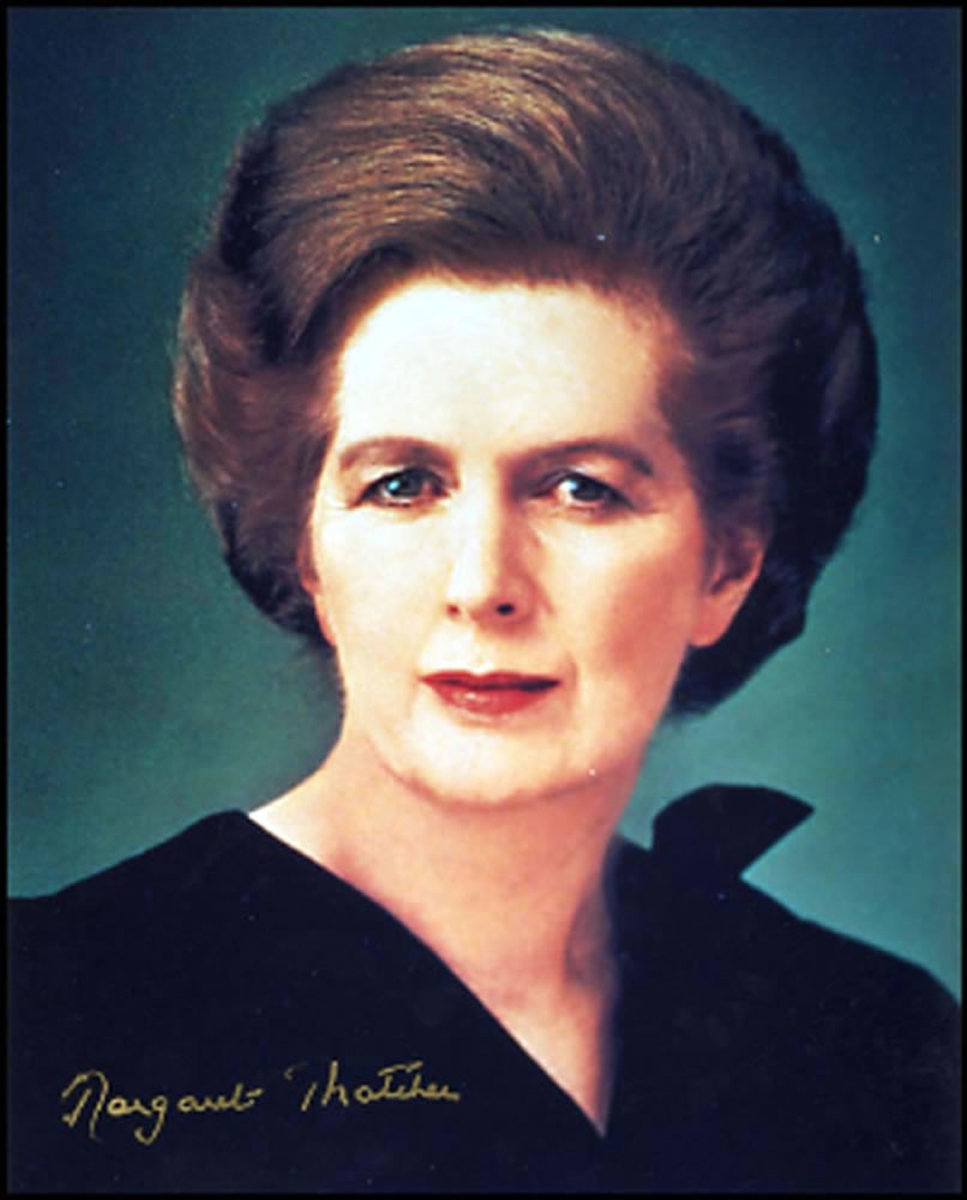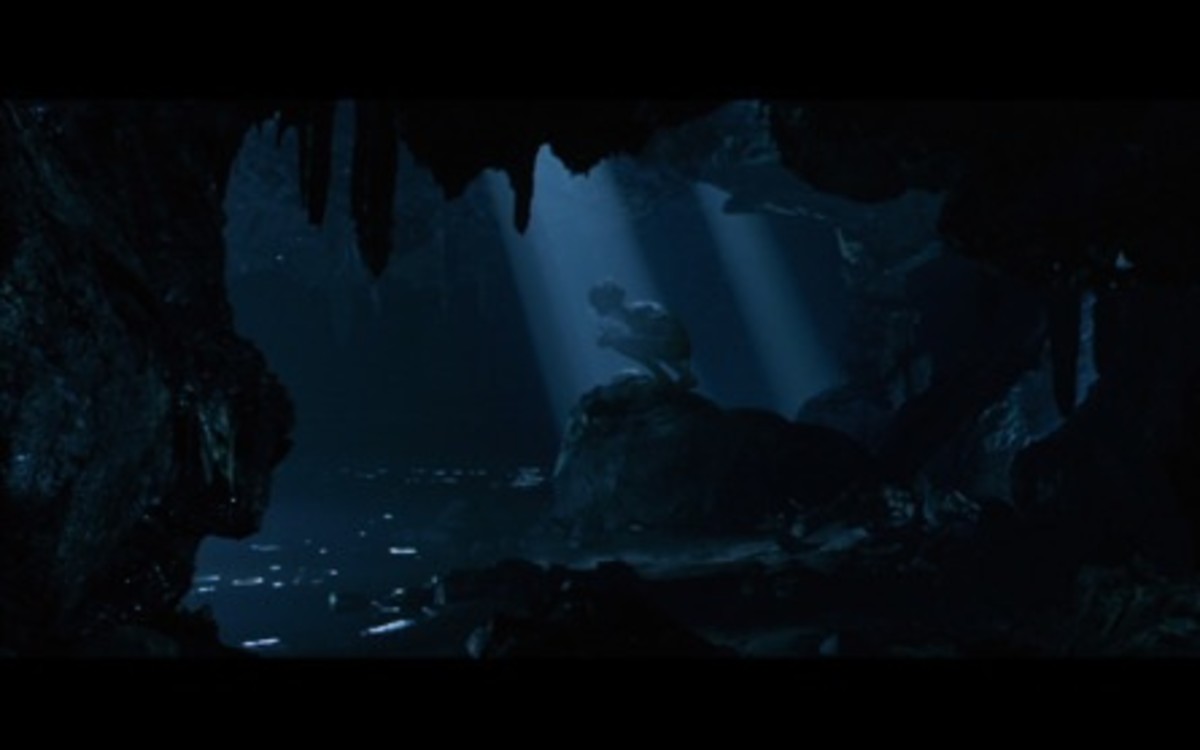Science Fiction and Britain in the 1980s

The 1980's stand as a powerful era for science fiction. It was a decade that saw the birth of such long-standing franchise lines as the Alien , Star Wars and Terminator series, the darkening of sci-fi which heralded the birth of the cyberpunk movement, as well as some of the first edgier recasts of older shows, books, and stories in franchises like Star Trek: The Next Generation and the films based upon the original series which emerged at that time. But something else interesting was happening in sci-fi in the 1980s, or rather, wasn’t happening. While US, Australian and Japanese Sci-Fi took off, Britain’s contributions died steadily until, in 1986, the only sci-fi left which was being produced domestically was the long running series Doctor Who , a few projects that were quickly killed (like Star Cops ) a handful of books, and a few radio adaptations. Why did this happen? Where was Britain in the middle of what was arguably one of the most, if not the most profound decade in the history of science fiction? Was it the changing definition of science fiction in North America that killed it, was it the cost of production required to compete with American exports, or was it something else? Was it a sudden lack of interest as eyes went elsewhere and focused on soap operas and courtroom dramas? Was it something in the politics or the culture at the time? Or was it perhaps a combination of all of these factors and more? To ferret out the answer, I will be looking through what little science fiction did come out of Britain in the 1980s, with a specific emphasis toward discovering what went wrong to cause the sudden and more or less complete death of the genre at that point in time, thereby providing critical insight in an effort to understand greater trends in science fiction.
One possible reason for the apparent death of new, domestic British science fiction in the 1980s is that, as a country, they were simply left behind. One of the hallmarks of science fiction as it progressed through the 1980s was that it changed and became darker, the most popular stories being action-packed thrill rides (like the Alien and Terminator films or the novels Neuromancer and When Gravity Fails) that led to the genre changing into what would become much more of an action-oriented medium than the predominantly intellectual medium it was in the days of Isaac Asimov and Dr. Who. While Britain embraced this change in places, in the form of films like the original Max Headroom, (before it was brought to America and recreated as a television show) and books by authors like Storm Constantine (Wraeththu Trilogy) and John Brunner (The Shockwave Rider), the birthplace of science fiction was not as keen or quick to adapt as wholly as the entertainment heavyweight, America–or more importantly, Hollywood–had been. The fact that other countries, most notably Australia and Japan, found their own ways of exploring and securing their place in the new scheme of things as well as they did was, in the end, only a nail in the coffin of domestic British science fiction.
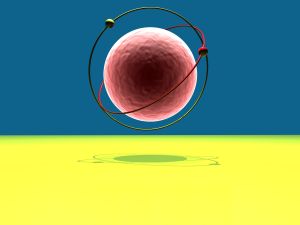
In the middle of this changing definition, we find the birth of cyberpunk, a fusion of science fiction and the punk movement that found its birth in the 1980s and blasted its way to the forefront of the genre during that decade. Heralding a darker direction for sci-fi, Cyberpunk found its greatest success in America, and doesn’t seem to have carried as much appeal with the country that clung to a definition of the genre epitomized by shows like Doctor Who . The British had already had their punk movement in the 1970s, and seemed all too ready to lump all stories with punk and counterculture elements into a singular punk category, regardless of any other leanings or content they might have. This change of not separating the punks of the future from the punks of today effectively divided science fiction as a genre within Britain and separated newer, grittier and darker content from that which was more pure by the standards of the golden age of sci-fi or that were otherwise more classical in the nature of the model that they followed of what a science fiction story should be like. As such, most of the science fiction we see coming out of Britain in the 1980s is completely devoid of punk elements, counter-cultural messages and other socially destructive content, instead preferring to remain well behaved, following the patterns set by the masters of the golden age (such as H.G. Wells and Arthur C. Clarke,) and often even going to so far as to revisit those classics in ways deemed more true to the genre and the manuscripts of the originals. Even the works of Douglas Adams (Hitchhiker’s Guide to the Galaxy ), which are placed in the science fiction section of American bookstores and shows like Goodnight Sweetheart , which use elements common to science fiction (i.e. time travel) were, at the time, seen by the British more as comedies than actual contributions to the same genre to which Doctor Who and 2001: A Space Odyssey belonged. Unlike in the United States, where the science fiction label was applied to more or less anything with elements of the fantastic (with the exception of the swords and magic of the fantasy genre, and even then, the two genres–sci-fi and fantasy–were more likely than not to be lumped together in a hybrid category) science fiction was seen in Britain as a very definitive genre requiring more than just one or two futuristic elements thrown in for flavor. In Britain, in order to be considered science fiction, the emphasis of a piece had to be on the science– it had to be a learning experience, and not just a modern-day action flick which includes lasers or quirky aliens. “In British Culture, science fiction tended to be collapsed with the ‘juvenile’”(Hunter, 115) creating a pure strain of the genre which focused on science, rocketships and learning, instead of tackling content which was increasingly darker, more complex, and aimed at predominantly adult audiences, as the authors and directors on American soil were keenly involved in doing. Instead of following the trends that the rest of the world was falling headfirst into at the time and producing their own eye-grabbingly dark sci-fi action equivalents to America’s Blade Runner or Alien , Britain seemed to waffle at first and then fall behind entirely as it embraced the notion that, as Hunter puts it, all sci-fi “was to weave its adventures out of known scientific fact and. . . try to offer dramatised lessons from history”(Hunter 116) as Doctor Who and Star Cops did. This hard and fast loyalty to an older (and quickly becoming obsolete) definition as to what qualified a film, show or piece of literature as sci-fi instead of something else was, without a doubt, an unfortunate turn of events for British domestic production of works within the genre since both of the aforementioned American films (Alien and Blade Runner ) were directed by British director Ridley Scott after he immigrated to America to pursue a bigger and brighter future of creating powerful, action-oriented sci-fi films with budgets more than twenty times the size of what producers in Britain could manage to scrape together.
But if the directors, authors and talent that made American science fiction bloom in the 1980s included a significant number of native Britons (Ridley Scott, Alec Guinness, Peter Cushing, Ian Holm, Patrick Stewart, and many others) then why don’t we see a corresponding explosion in the science fiction of their native country? The simplest answer is, I think, because nearly all of the talent which had been British in nature and that would ultimately redefine the changing genre as a whole simply left, leaving behind only the inflexible, more socially acceptable contributions that stuck to the classical model of the genre (like Doctor Who and Star Cops ) behind to spin on until their eventual oblivion on the BBC. It was an era where the anti-hero of films like Blade Runner and Terminator and books like Neuromancer and Snow Crash really became romanticized in American science fiction, while the classic, quirky, gentleman hero seen strongest in the Doctor of Doctor Who faded from view, persisting almost exclusively in the United Kingdom despite waning viewers. Even on into the late 80's with releases like Star Cops , a television show which was, essentially, Sherlock Holmes in space, there was a continuation of this gentleman spaceman idea, and British talent who really embraced the new directions the genre was taking elsewhere in the world were simply lured away. As one of many such talented individuals drawn to America, the primary driver for director Ridley Scott was the freedom to create and the new power of the changing genre, as well as the prevalence of special effects as an expressive medium. “It was the American idea of ‘you can do anything if you want to’”(Jacobson, 23) that ultimately caused the exodus, Scott says, while others acknowledge that, “after seeing Star Wars . . . [Scott] became convinced of the potential of large scale, effects-driven films”. It was these large scale, effects-driven films that would change and redefine the way science fiction was portrayed not only in film, but in literature as well. As the genre as a whole became more and more a medium for action and thriller stories instead of retaining the classic focus on intellectual content and brilliant, acceptable social commentary that stood out during the much earlier golden age of science fiction, those who resisted the change fell by the wayside. “The British empire is gone, leaving a world dominated by the American dream.” writes Sam Hood in his New Statesman article entitled “Empire Strikes Back ”, addressing changes that occurred during the 80's in literature as a whole. As a phenomenon very much steeped in popular culture, nowhere else, perhaps, can we see this change more clearly than in the shift of definition and the resulting gap which occurred in the genre during the 1980's.

Another blow to the domestic production of science fiction in Britain came in the form of the cost of production required to compete with American exports. While some talent left the country for promises of money and flexibility to produce the kinds of science fiction they wanted in America, those who stayed faced abysmal budgets that were often cut further at the end of a season instead of being raised to give the show more potential to work with or even to keep up with inflation. The Tripods, a series which aired in 1984 and was “partly intended as a replacement for Doctor Who” (The Tripods [BBC]) was given what was considered, at the time, an expansive budget of one million pounds for its entire two-season production run, (a total of twenty-five episodes) and though this was an impressive amount of money to spend by British standards, it was no where near as large as the budgets that American shows like Star Trek: The Next Generation which, when it debuted in 1987, was costing Paramount “more than $1 million per episode”(Tong) and Battlestar Galactica, another million-dollar-an-episode series that ran from 1978 to 1980. American science fiction films were running budgets that were even more disproportionate when compared with their British contemporaries, their production values ranging from 6.5 million dollars for Terminator to 18.5 million for Aliens and $32 million for Return of the Jedi. Even Ridley Scott, whose last British film The Duellists, was run on a budget of $900,000, saw a phenomenal increase in his production budget when he directed Blade Runner in the U.S., a film whose costs ran to twenty eight million dollars.
With demand for domestic British science fiction apparently less internationally dense than that for American productions, the films and BBC shows like Doctor Who were simply unable to pull together budgets that could even come close to competing with those of American imports, and what they did try to pull together in order to compete ended up only looking like a shallow and cheap imitation of something already out there which was of a much higher quality. Writing about the show Doctor Who in his article “Back to the future,” William Cook’s statement that “its home-made monsters belong to an earlier, more innocent age. You won't catch modern children hiding behind the sofa from these costume cupboard cast-offs” (Cook, 27) really and truly exemplifies this. The people behind shows like Doctor Who were certainly resourceful, driven and talented, but they were too limited in their thinking and their approaches toward science fiction. While Australian exports hung on at the edge with minimal budgets by producing post-apocalyptic science fiction films like those in the Mad Max series and Japan’s contributions to science fiction rapidly became almost wholly anime (and stayed that way), allowing for the big special effects of American films without the need for such large budgets, the people behind British productions like Doctor Who and Star Cops tried to bridge the gap between themselves and their American contemporaries simply by stretching each dollar (or pound) that much further. As such, instead of rising to meet the visual splendor of shows like Star Trek: The Next Generation, shows like Doctor Who continued to persist in a vein similar to the original Star Trek, and other similar sci-fi shows from the 1960s. Unfortunately, in a medium like television or film, where the power of the effects can so often overwhelm the storyline and draw in record-breaking viewership regardless of the quality or uniqueness of the story, too much cost cutting in the wrong places (set design, special effects, appearance of aliens, starships and other futuristic elements) can ultimately prove to be the downfall of even the most well-developed stories.

But what about books? One might argue that the high cost of special effects is immaterial to the production of written material in a given genre, but a stance of that nature overlooks the production costs of promoting books, as well as the money spent snaring the public eye for new stories and magazines that cater to the genre. It’s a sad fact of the publishing industry that, the more money that goes into advertising a product, the more that people are likely to see it (and therefore likely to buy it.) British science fiction authors, since the 1980s, have found themselves facing a hard road in their quest for publication. Not only are they writing in a genre that is rarely respected as literature and is often cast off as trash, but they’re marketing this trash, no matter how good or literary it may really be, to a much smaller audience initially (unless they become popular enough to get picked up internationally) than the one that authors here in America have access to domestically (which is roughly six fold larger.) Add to that an exchange rate which favors lower-cost American imports for consumption in Britain over higher-cost British exports and their availability in the United States, and suddenly we see again the all too familiar picture of British science fiction wilting away by the roadside of commercial progress. Producers look for what works, they look for what the people want and finance projects that will capitalize most on what is popular at any given time, and while this can lead to lawsuits (like those that shot back and forth between Fox and Universal over similarities between Star Wars and Battlestar Galactica,) it more often than not pays off in the end, to the detriment of every other piece of science fiction, British or no, that is out there still waiting to be picked up and funded enough to change the world.
But the size of a show’s budget alone can’t guarantee viewership, as evidenced by the popularity that low-cost shows like Doctor Who and the original Star Trek enjoyed, even if only temporarily in some cases. Great stories can and have been made on a shoe-string budget, so there must be a deeper reason why science fiction exports died so suddenly and so completely in the Britain of the 1980s. Why weren’t people watching shows like Doctor Who? Why did the viewership of this series alone shrink so quickly, dropping from “14.5 million to 4.5 million”(Cook, 27) between the late 1970s and when it was canceled in the late 1980s? Were people simply turning off the T.V. instead of tuning in on artistic visions of the future, or were they watching something else? Looking back on what was coming out in the 1980s, there is certainly evidence to suggest that some of the latter was happening, as a spike in the popularity of soap operas and other similar dramatic shows grounded firmly in the present caught the eye of the BBC. “In programming terms the 1980s represented a period when some very expensive classic drama was produced.” (Alvarado) and since producers tend to only invest heavily in shows or product that research and marketing trends show are or are likely to become the most popular, we can assume that there must have been a great many people interested in and watching such shows. The very fact that Doctor Who which, even today, is considered by some to be one of Britain’s greatest and most powerful contributions to science fiction, took its biggest hit in viewership when it was placed opposite Coronation Street in 1986, forcing it to compete directly with the most popular show on British television at the time, seems to indicate there was at least a little bit of a switchover going on. In Britain, VCRs were still an expensive luxury, and competing shows like Doctor Who and Coronation Street couldn’t just be taped without having the television on and tuned to the same channel as well. As such, people were forced to choose between shows, and statistics (as well as choices about where funding was to ultimately go) seem to indicate that, in the end, Coronation Street and other similar soap operas and dramas, both domestic and imported, were the more popular choice and ultimately won out.

But the placement of Doctor Who at the same time as Coronation Street wasn’t an isolated incident, and it wasn’t the end of the blows that were dealt to domestic science fiction in the Britain of the 1980s, it merely signaled the final stage of the downfall that would culminate in the near elimination of indigenous contributions to the genre. Suddenly, science fiction wasn’t a looming figure in the eye of the British mainstream–courtroom dramas and soap operas were, programs that featured real people in real world situations living what flowed like real lives and dealing with the same doubts and fears. The people wanted the familiar, that which was safe and echoed with the same situations they found within the walls of their own homes, entertainment which told “a story already told in some of the most successful films of all time. . . instead of the open-ended future one finds in science fiction”(Hood). The public needed entertainment it could identify with, stories that reflected “the pessimism of a vanished empire and its age”(Hood) instead of a distant and seemingly unreachable future filled with enemies less important (but potentially more powerful) than any of those haunting the daily news. In America, however, where the sheer size of the population allowed for much larger and more profitable niche markets, as well as a larger crowd of individuals receptive to science fiction because of the strength of the seemingly “American certainty that [the] future can be turned to the good”(Hood), the competition between the serious dramas and more imaginative productions was less pronounced (and therefore less of a concern.) As such, while the budgets, feats and viewers of American science fiction burgeoned all over the world, literally flooding the market with films, television shows, books and stories that expanded and worked to consistently redefine the genre over and over again, British contributions dropped away one by one, each year yielding about half as many productions and about half as much interest as the previous year. In this way, 1986 wasn’t a hard year only for Doctor Who and fans of the show, but for the entire domestic industry tied into the genre as well. Except in the case of one or two cheesy and/or trashy cooperative ventures between the US and Britain (like the film Earth Girls Are Easy), the world didn’t see another British science fiction film until Murder by Moonlight in 1991 and Death Machine in 1994, both of which still were left playing second fiddle to American films like Terminator 2: Judgement Day and Stargate respectively. But as the 1980s ground to its inevitable close and as the last of the science fiction films produced in Britain fell away, the only series still left on BBC was the monolithic Doctor Who, though even this great pillar of the genre was eventually cut in favor of more mainstream entertainment. “The BBC is committed to make a lot of new drama this year and we cannot afford to do that and Dr. Who”(Chapman, 155) read the official report when the pillar of science fiction was laid out on the chopping block, but despite recommendations from higher up that less serious shows like Doctor Who should be cut, the fan base that the series had accrued managed to keep the axes at bay through this harsh winter of British science fiction until it hit its most devastating point in 1989. It was this sad year when, despite all of the efforts of Doctor Who’s most ardent fans, the hammer finally fell and the struggling show that had endured since 1963 was put out of its misery, at least until its rebirth almost twenty years later in 2005.
But the pressures to cut science fiction from the popular media in the Britain of the late 1980s weren’t entirely motivated by the idea of moving less important or less serious stories out of the way of better pieces that were deemed to be more popular or of more socially redeeming value. Other concerns weighed heavily on the genre, especially during the late 1980s, when the fist of politics tightened around the proverbial neck of the genre and refused to let go. But why target science fiction? Why target a genre that so many might consider to simply be silly or juvenile entertainment with no real purpose beyond making science entertaining and no real audience (or at least not an audience which could rival the size of that of a drama or a soap opera like Coronation Street ) when there were other, much more subversive elements to society which could have been cracked down on? The reasoning is simple: science fiction is readily recognized both by politicians and members of the media as a genre that looks up, that peers into society and follows the slippery slope of the way things are, or rather, the way they could become, to the bottom and back again, criticizing everything the artist, author or director sees which is unsavory and dragging the dirty laundry of a plausible future out for all to see before the present has even yet had a chance to try it on. During the Margaret Thatcher era, this sort of entertainment oversight, as it were, the constantly watching eyes of writers who cloaked their cautionary warnings in starships and aliens, became a real threat to the status quo and, in turn, culminated in a real problem for the domestic productions within the genre which were looking into things and putting their opinions out there for the public to see. Even historians who stand as the harshest critics of science fiction see the power of the genre as both a reflection and a criticism of the socio-political environments from which they find their birth. “These trash-aesthetic shows claimed to describe some vague vision of the future, but they were actually remarkably accurate portraits of their own age” (Cook, 26). The presence of a segment of the media which provided such a “remarkably accurate portrait” of the government in non-serious television certainly didn’t do much to allay the fears and prejudices of people like Margaret Thatcher, who, in the 1980s, was “convinced that during the 1960s left-wing sympathizers had flooded into the BBC and, now in positions of power during the 1980s, were undermining her efforts to swing Britain to the right”(Jones, 60). Looking at some of the episodes of Doctor Who which were airing during this period (such as the serial The Happiness Patrol , where Margaret Thatcher comes across clearly in the presentation of an evil alien dictator known as Helen A) it becomes quickly clear that these claims might not have been wholly unfounded. “Our feeling was that Margaret Thatcher was far more terrifying than any monster the Doctor had encountered” (Kelly) former Doctor Who lead Sylvester McCoy eventually admitted in an interview with the Daily Mail which only aired this February, more than twenty years after the fact.

When looking at the way in which the embedded political commentary of a number of Doctor Who episodes even beyond The Happiness Patrol could be viewed as indirect attacks on Thatcher and her ideal government, it is easy to see not only where an opinion that the BBC was, during the 1980s, “in the hands of a 'Marxist mafia'” (Kelly) might come from, but also why shows like Doctor Who were targeted so fiercely and science fiction as a domestically produced genre took such a heavy hit during that period. Even Cook sees it when he writes: “‘It is wrong to give in to the miners,’ [the queen] declared, sounding uncannily like Margaret Thatcher. ‘They'll want more and more.’ Even [Doctor Who] itself was a victim of industrial unrest” (Cook, 26) It is no surprise then that the show came under fire of budget cuts and was eventually shot down, by first appearances, from within, though ultimately by the hand of the very government it was critical of when “Mrs. Thatcher packed the Board of Governors with like-minded people who soon sacked an obstinately independent BBC Director-General in 1987 [and]. . . A regime of direct political pressures and internal censorship developed.”(Klug, 182) Many critics, researchers and fans who have looked into the reasons behind the cancellation of Doctor Who think that this sudden takeover of the BBC by the government at the time and the installation of Professor Sir Alan Peacock and his committee to “investigate the funding of the BBC” (Chapman, 154) ultimately led to the death of a number of shows, including Star Cops and, of course, Doctor Who. Suddenly, there were very few people of power left in the BBC who felt that Doctor Who might have been worth the 100,000 pounds an episode that its production was costing the network, and the cuts that the show (and its kind suffered) as well as their poor placement in television time slots soon followed. Was this all just a coincidence? Maybe, but I would suggest that, given the evidence that exists, you don’t have to be a conspiracy theorist to see at least some connections, however minimal, between the political maneuverings of the leaders of the Thatcher Era and the disappearance of domestic British science fiction which left a gap in the genre spanning the entire length of the 1980s, and ultimately had ramifications for the genre as a whole which can be felt by fans not only of Doctor Who, but of other shows, films, franchises and concepts which maintain a cult following even today.
To say that the cause of the strange and somewhat sudden death of British science fiction in the 1980s was any one thing, I think, is to ignore a whole host of other factors. While British science fiction exports have consistently lagged behind those created in America, even if only in volume, the dropout of the genre during one of the most powerful decades in Sci-Fi history leaves a detectable gap that begs the question–what happened? Britain’s view of what science fiction is (or was) and their inflexibility in the face of the changing definition of the genre combined with an increase in cost in order to produce competitive works domestically, a falling viewership (partly due to popularity of American science fiction imports and partly due to the popularity of other shows) and a hostile socio-political environment all combined to bring down the genre, signaling “a gradual decline in production as the BBC, in particular, seemed content to import and repeat increasing numbers of American series, including Star Trek. . . and the genre related telefantasies. . . which all supplanted indigenous SF” (Seed, 301). To this day, the ramifications of this stark, decade-long hiatus of British science fiction remain, leaving an unmistakable gap in the continuum of greater works that dare to peer into the future and beyond.







